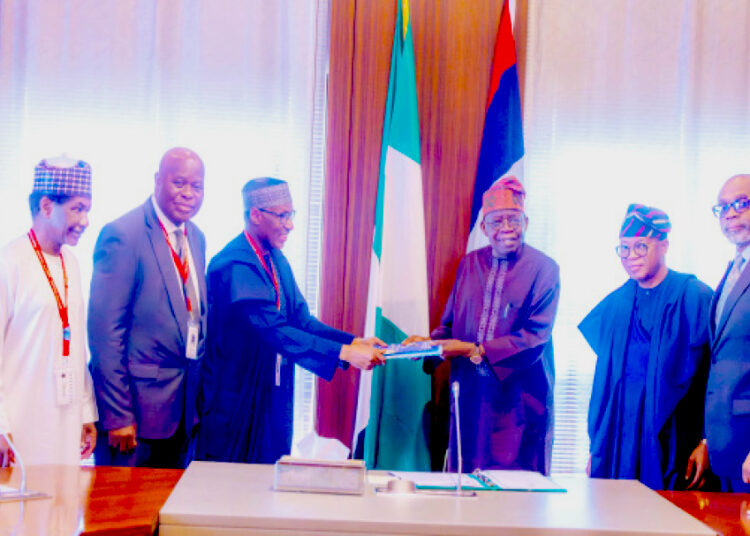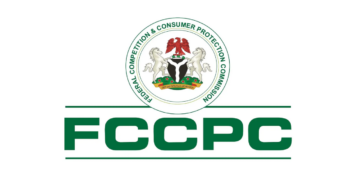In a historic achievement, Nigeria has successfully extended its maritime boundaries, gaining sovereignty over an additional 16,300 square kilometers of territory in the Gulf of Guinea.
This significant expansion, roughly five times the size of Lagos State, was approved by the United Nations Commission on the Limits of the Continental Shelf (CLCS) in August 2023, marking a momentous victory for the nation’s economic and strategic interests.
The journey to secure this territorial expansion has been a long and arduous one, spanning over a decade of meticulous scientific research, diplomatic efforts, and unwavering commitment from a team of dedicated experts.
At the forefront of this endeavor was the High-Powered Presidential Committee (HPPC), established by former President Muhammadu Buhari in 2015, with a mandate to oversee Nigeria’s Extended Continental Shelf Project.
On May 14, 2024, President Bola Tinubu received the much-awaited report from the HPPC, commending the team for their diligence and acknowledging the significance of this achievement.
This is big congratulations for Nigeria,’’ he said while recounting how former President Buhari had briefed him on the importance of the project.
“At COP28 in Dubai, I also exchanged views with President Lula of Brazil on the need for collaboration within our economic and maritime boundaries.
‘’Today, it is a great honour for me to receive this report. I have listened attentively to this very specialized report, and I know it took a whole lot of effort to get to this stage.
“I commend the team, and we must take advantage of this and invite you again to have a repeat of this knowledge exploration on geography, hydrography, and the marine life.
“Nigeria is grateful for the efforts that you put into gaining additional territory for the country without going to war. Some nations went to war, lost people and economic opportunities.
“We lost nothing but have gained great benefits for Nigeria. We will pursue the best option for the country,” the President said.
The newly acquired territory, dubbed “the Golden Triangle” in the Gulf of Guinea, is believed to hold unquantifiable resources, including hydrocarbons, gas, solid minerals, and a wide variety of sedentary species. This expansion not only enhances Nigeria’s maritime sovereignty but also opens up vast economic opportunities for exploration and exploitation of these resources.
At the heart of this triumph lies a remarkable team of experts, whose dedication and expertise were instrumental in securing this victory through diplomatic channels.
Among them is Surveyor Aliyu Omar, the Member/Secretary of the HPPC, whose institutional memory and unwavering commitment have been pivotal to the project’s success.
Omar, a seasoned Land Surveyor with a wealth of experience in maritime boundaries and geoinformatics, has been involved in the project since its inception in 2000.
He played a crucial role in leading the Nigerian Technical Team through the rigorous question-and-answer sessions with the CLCS, showcasing exceptional knowledge and diplomacy.
The road to this achievement has been paved with challenges and setbacks. In 2009, Nigeria submitted its initial request to extend its continental shelf to the CLCS, kicking off a process that faced delays due to lack of funds and administrative hurdles.
It was not until 2013 that the Senate of the Federal Republic, recognizing the urgency of the matter, urged the Federal Government to fund the project and establish an independent body to handle it.
Senator George Thompson Sekibo, a champion of the project, sponsored a motion in 2019 titled “Urgent need to ascertain the status of the Nigerian Extended Continental Shelf Project.” This motion, co-sponsored by 32 other senators, underscored the importance of the endeavor and called for renewed efforts to ensure its successful completion.
The HPPC, operating as an independent technical body, played a pivotal role in cutting through bureaucratic red tape and effectively managing the project.
Under the leadership of former Attorney General of the Federation and Minister of Justice, Abubakar Malami, who served as the initial chairman, the committee navigated the complex legal and diplomatic challenges with skill and determination.
A renowned marine scientist and member of the HPPC, Professor Larry Awosika emphasized the economic potential of the newly acquired territory during his technical presentation to President Tinubu.
However, he cautioned against the total disclosure of sensitive data acquired during surveys, noting that confidentiality is crucial as Nigeria seeks to monetize the information to recover project expenses.
The significance of this achievement extends beyond mere territorial expansion. It showcases Nigeria’s commitment to resolving disputes through peaceful means and leveraging its expertise in diplomacy and scientific research.
The success of this project serves as a testament to the nation’s ability to assert its sovereign rights while upholding the principles of international law and cooperation.
As Nigeria embarks on this new chapter, the government faces the challenge of effectively managing and developing the acquired maritime territory. President Tinubu has pledged to “pursue the best option for the country,” underscoring the need for a strategic and sustainable approach to capitalize on the opportunities presented by this expansion.
The journey to extend Nigeria’s continental shelf serves as a shining example of what can be achieved through perseverance, expertise, and a commitment to peaceful resolution. It is a triumph not only for Nigeria but also for the principles of international cooperation and respect for the rule of law.
As the nation celebrates this historic achievement, the contributions of the dedicated experts who made it possible must be recognized and appreciated.
Their unwavering efforts have secured a lasting legacy for Nigeria, one that promises to shape the country’s economic and strategic future for generations to come.





